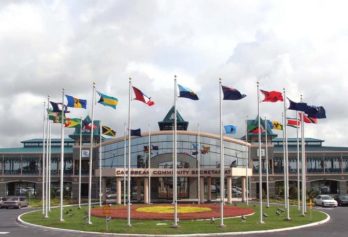Dominica’s Prime Minister Roosevelt Skerrit says the 1979 Grenada revolution that brought Maurice Bishop to power marked the most decisive fracture in the Anglophone Caribbean with the political and constitutional status quo.
“The greatest tragedy of that historical episode is that we have failed to learn the lessons of that experience and even more disturbingly, succeeding generations seem to have no knowledge of what is without question, the most significant historical episode in the Caribbean in the 20th Century,” Skerrit said as he delivered the inaugural March 13th Lecture Monday night organized by the Grenada Revolution Memorial Foundation Inc. (GREMFO) and Groundation Grenada.
Speaking on the topic: “The Grenada Revolution, Foreign Policy and Development of Small Island States in the Present International Environment,” Skerrit said that the most important lesson for the contemporary leaders of the region ”is the imperative and the special responsibility to speak out clearly and loudly against any infringement of the fundamental freedoms that our fore-parents so desperately fought for.”
The Grenada revolution was sparked by the 1979 overthrow of the Eric Gairy administration by the leftwing New Jewel Movement (NJM).
The revolution lasted four years, ending when deputy prime minister Bernard Coard staged a palace coup against the island’s first left wing prime minister Maurice Bishop.
Bishop and several of his ministers were later killed and Coard and 18 others were sentenced to jail, but were released a few years ago.
Prime Minister Skerrit said it should be noted that “no decisive interventions” were made by the Caribbean or American leadership when then Prime Minister Gairy brought “Grenada into the orbit of fascism” with links to former Chilean leader Augusto Pinochet and South Korea’s strongman, Park Chung-Hee.
He said the regional and American governments were also quiet when Gairy used his Mongoose Gang and “his progressive subversion of the democratic process.”
In analyzing the lessons learned with respect to the foreign policy and the development options pursued by the Grenada revolution, Prime Minister Skerrit said the fundamental principles that guided such a policy were one of non alignment and diversification of relations to extend the range of friendships while providing options in pursuit of national self-interest.
“Grenada did not believe in putting all its eggs in one basket, especially a basket that was lined with dictated conditionalities that ran counter to its philosophy of what must be done to empower and enfranchise its people.”
Read more at Caribbean360



